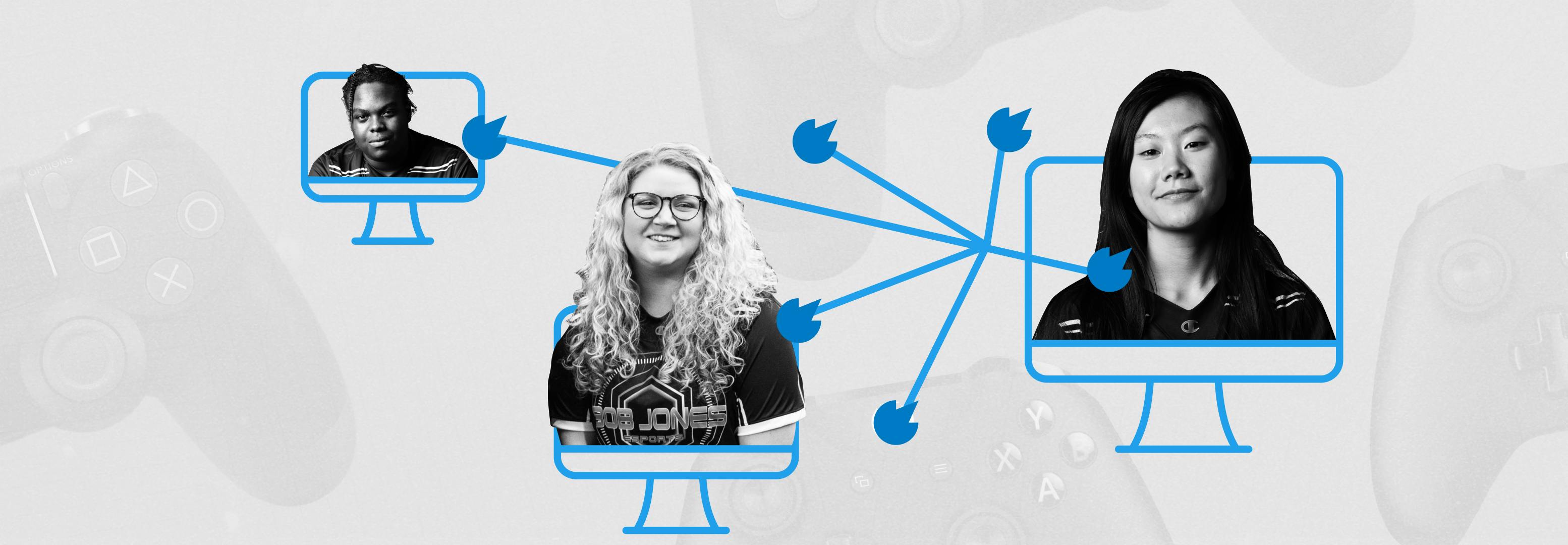
Building Your H.S. Esports Program Virtually
How the pandemic has created new best practices for running an esports program
As schools march through the Fall season of PlayVS competition – some on campus, others virtually – coaches and program directors have developed several methods to run their teams with a regular cadence, all while making sure students have the same opportunities to learn and grow.
Since at-home internet speeds may differ from student to student, permission to use the gaming lab as part of a 50/50 hybrid model has picked up steam with many programs we've talked to.
"I've had to think outside the box a lot more this year than the past several seasons I've had," TAPPS PlayVS Super Coach Ronnie Baskin, "But, the kids that we have been able to keep around are more committed than ever."
It's Different When Running Esports Virtually
Coach Jon Alfred Alfred estimates that most students at Willow Canyon High School in Arizona, where he also serves as a teacher, are attending class in person. But with some students opting to stay at home for remote learning, he's had to adjust – even with sparkling new gaming rigs available at the school's esports lab.
"A lot of the kids are still learning from home. So, I've gotten creative with my new athletic director to get our Discord going, and he helped to get the ball rolling [with recruitment]."
As with other remote learning opportunities, a key to running esports teams virtually is to communicate well and to post updates often. That means focusing on not the players whereabouts and involving their parents with regular communications and updates about your teams' scheduling.
According to Alfred, updating social media frequently is also a failsafe method for generating the buzz needed to recruit underclassmen. Using Discord and Twitter to your advantage can not only get current team members on track for the pacing of practices, scrimmages and league games – but also to fill out the end of your bench.
"Kids will start coming to you and asking questions. 'Um, what is esports?' or 'Why can't I play this game?', or 'What is League of Legends?' They may not have heard of it, but you get them into the lab, then you get them to start to play."
Understand Your Students' Wellbeing
High school esports teams are often intramural and have a unique challenge to balance the team's spirits now that many students are learning at least half of the time remotely. Asking for a simple thumbs up or thumbs down via Zoom during remote practice sessions can help, while allowing coaches a window into what's been going on in players' lives since the team was last together.
"I have one student who sometimes has insomnia, and I myself will be up on the computer grading papers at like three in the morning," said Alfred. "And there's our player online in a server, you know, champ select! And so his friends are texting him and they're trying to call him and wake him up for practice at 2 p.m the next day."
Simply using a wellbeing check-in Google Form every couple of weeks can enlighten you to your students' thoughts during these unprecedented times. And when it comes to their esports exploits, reviewing match highlights and pointing out the positives can go a long way.
"We can review the match afterwards and kind of see what went wrong, what went right," said Baskin. "Doing that as a group has kind of helped us as a team build community, and stay really close together and it's also helped us kind of grow together."
Build Expectation With Predictability And Cadence
It's no secret that successful esports programs have a robust structure around their activities as a group. Whether that's done primarily through Discord or via email to loop in parents and other coaches, it significantly reduces your players' anxiety to have a regular routine while keeping your dates consistent.
"You have to lay the groundwork to let the team know how important this is – that esports is a sanctioned activity, not something we're coming in and just hanging out for and blowing off steam," said Baskin. "This is a focused activity that we're trying to improve on each week and make some progress, and by laying a lot of that groundwork [ahead of time] it makes it a lot easier to get them to commit to your schedule."
At the conclusion of your virtual practices or scrims, take attendance. That will allow you to maintain accountability among the ranks of your teams. If a student needs to leave practice early for work or other commitments, standardize a checkout procedure and make sure to review the rest of practice highlights with them later in the week.
Of course these are only a few tips from our Super Coaches, but you can register for our next Coach's Clinic right here to learn about how top programs are working during the pandemic.